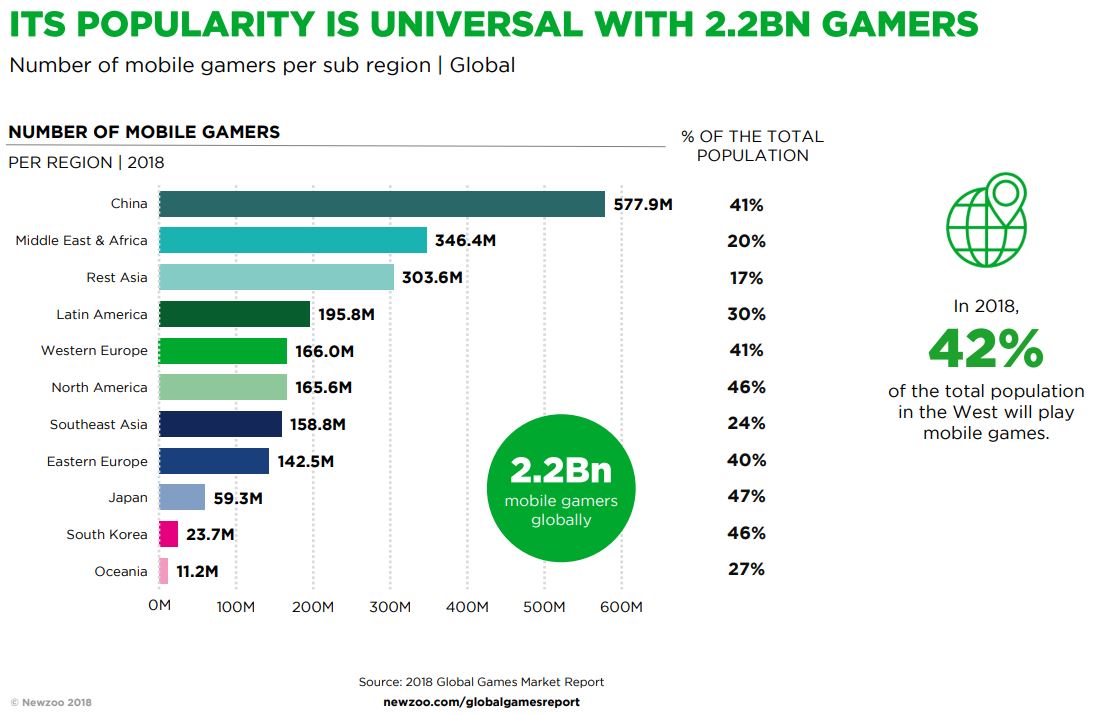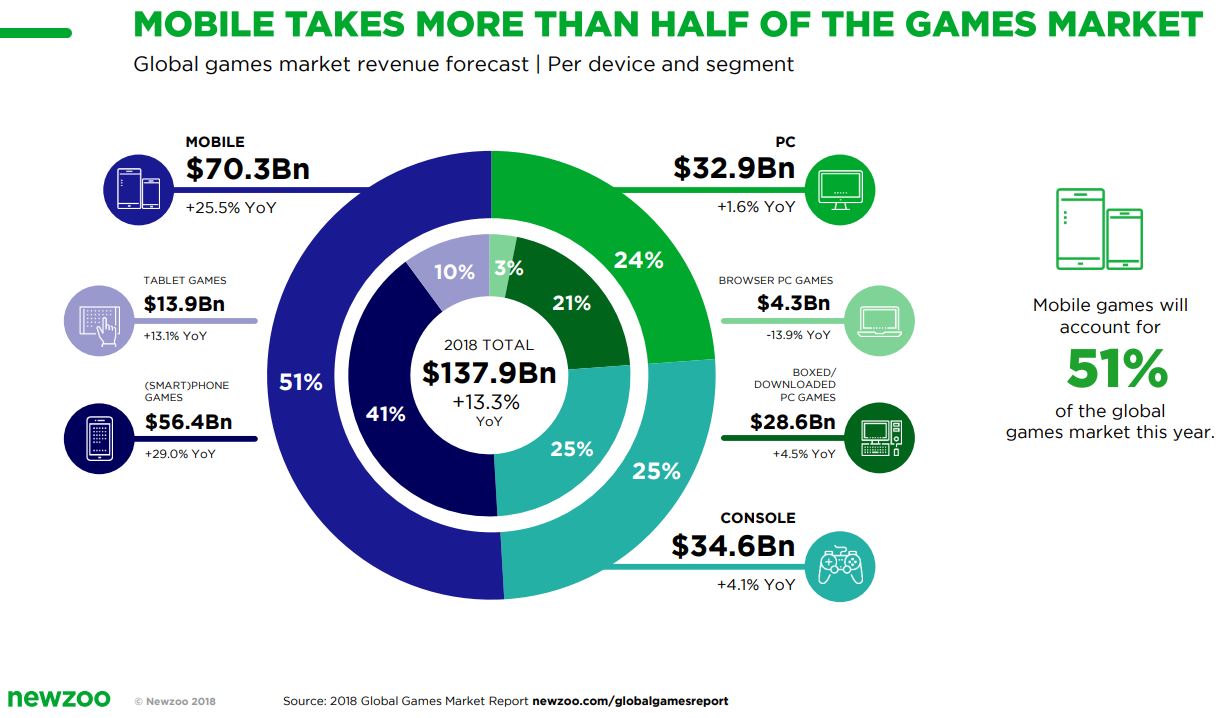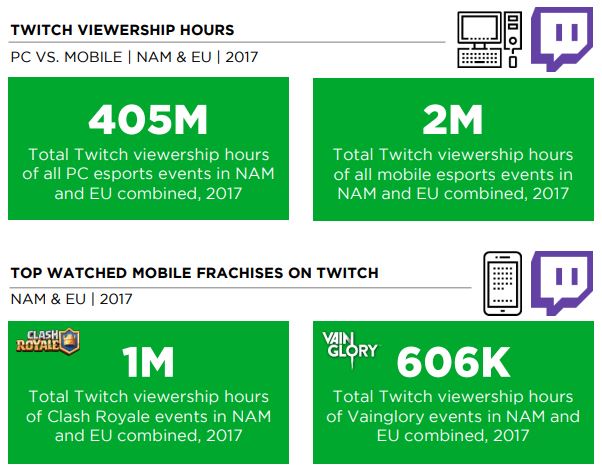Affiliate links on Android Authority may earn us a commission. Learn more.
Why eSports are here to stay beyond the 2018 Asian Games

By Pablo Fraile, Director of Game Developer Ecosystems, Arm
Video gaming has been around for close to 40 years, but its move into professional sporting competition has only happened recently. There are now multiple eSports events happening worldwide — attracting thousands of spectators and millions of views online. The world’s leading sporting bodies are starting to sit up and take notice, with the organizers of the 18th Asian Games deciding that eSports should be recognized as a sporting event.
Gamers from all around the world came to compete for the first-ever sporting gold, silver, and bronze medals in eSports between August 18th and September 2nd. The Asian Games is second only to the Olympics in international sport, so this is a major boost and it further opens the door to a new era of professional eSports competitions. Could we see a new Cristiano Ronaldo or LeBron James making their name in Clash Royale or Arena of Valor — just two of the mobile game based eSports available at the Asian Games.
However, questions have been raised about, firstly, whether eSports is a ‘real sport’ in the same way that traditional sporting events are, secondly, whether it should have been included as an event at these international sporting Games, and, finally, whether its inclusion is a ‘gimmick’ that won’t last. My answers to all three points are yes it is, yes it should be, and no it won’t be. In fact, this could be the start of something bigger for eSports in the future.
A sporting and financial success
eSports is in its ascendancy, with a new report by market intelligence agency Newzoo sponsored by Arm, estimating global eSports revenues will reach $906 million in 2018, representing a year-on-year growth of 38.2 percent. Seventy-seven percent of these revenues are made up of brand spending through sponsorship, advertising and other forms of promotion. This financial success has driven its inclusion in the Asian Games with organizers signing a partnership with Alisports, the sporting arm of Chinese tech company Alibaba. It won’t be one-off either, as there is a further commitment to include eSports events at the 2022 Asian Games in China.

The revenue growth and increased brand interest in eSports is being helped by the huge fan base, which is expected to reach 380 million people worldwide this year. Interestingly, occasional viewers (watching once a month) represent a larger share of the total eSports audience — around 215 million — compared to enthusiasts (watching more than once a month) — around 165 million. This indicates a trend towards eSports going mainstream, moving away from a niche audience of gaming enthusiasts.

Getting organized
New league structures and competitions are also helping audience growth. In 2017, a franchising system was implemented across the eSports industry in North America, as happened with U.S.-based sports such as baseball (MLB), basketball (NBA) and American football (NFL) — and we know what that led to! Under the new franchising structure, major publishers Riot Games and Blizzard Entertainment are operating the North American League of Legends Championship Series (NA LCS) and Overwatch League (OWL). Now the NA LCS is the most watched event on game-streaming site Twitch to date at 49.5 million hours.
Phenomenally popular games like Fortnite are bringing wider audiences than ever before into gaming.
eSports competitions are also going from strength-to-strength. Epic Games recently announced it would give $100 million in prize pool money for Fortnite competitions in the first year of competitive play. The prize pool will make Fortnite one of the most lucrative eSports games ever, with the game already making $1 million a day on mobile alone thanks to its popularity both in gaming circles and an increasingly broad cultural appeal.
From the gaming room to the biggest sports stadiums
Along with the rise of eSports, we’re seeing the trend towards mobile gaming continuing, with mobile set to overtake regular gaming as the largest revenue source in the global games market in 2018. Interestingly, Asia — not North America — is where the growth in mobile eSports is hottest. Many of the top mobile competitive titles have professional leagues and live stadium events drawing millions of viewers. In 2017, 13,000 people attended the Chinese-based King Pro League — the world’s number one mobile eSports league.
The rapid professionalization of gaming in Asia is also driving incomes, with total gaming revenues in the Asia-Pacific region expected to be around $44 billion for 2018. More than half of the consumer spending comes from China and Japan, and these consumers will account for over half of all consumer spending on mobile games worldwide in 2018. Central to the rise of mobile gaming are higher performance smartphones offering premium gaming experiences for gamers. We see this through Arm’s own shipment figures with over a billion graphics chips (Arm Mali GPUs) being shipped to partners worldwide to date, with increasingly powerful performance points.

Despite all the recent growth in revenues and popularity, the view from the industry experts is that eSports still has a long way to go — at least five to ten years on the steep growth curve it has been on. To put it into context, the Super Bowl attracts over 100 million viewers each year, which is still way ahead of eSports events that are mainly streamed online. However, it does give eSports something to aim for in the future!
READ: Overwatch League Season 2 preview: Start date, new teams, how to watch, and more
There is still a long way to go until eSports achieve popularity similar to mainstream sports, but its revenues, viewership, and growth during the past few years show that it needs to be taken seriously. Its inclusion in the Asian Games recognizes this incredible growth, with the organizers making the firm commitment to include eSports events again in 2022. eSports is not a gimmick that will eventually fade away. In fact, its inclusion at the 2018 Asian Games is unlikely to be the pinnacle for the sport. The ultimate ambition has to be having eSports events at the Paris Olympic games in 2024 — something that is definitely within reach for a sport experiencing phenomenal growth. My message is to ignore the doubters, eSports are here to stay.